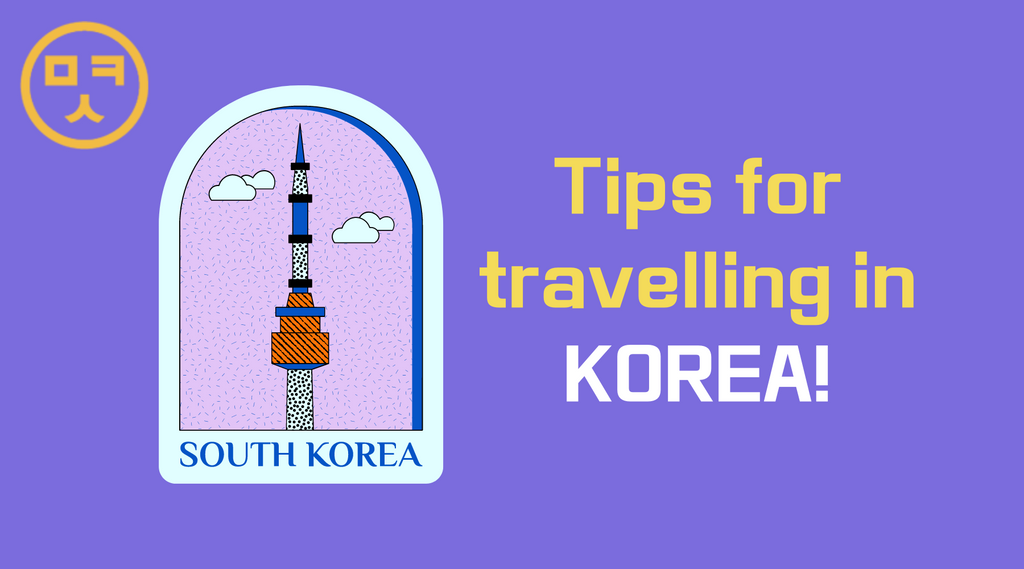Tips for travelling in Korea!

As international borders are opening up and travel restrictions are easing, it is time to start thinking about broadening our airbnb searches. For those interested in studying the Korean language, what better way to learn than to hop on a plane and study Korean in Korea! Jump in the deep end of the pool, and flail about. But actually it is far easier than you might think. You will soon find yourself floating on your back, enjoying your time in Korea.
In Korea you will find that the locals are forgiving of the stammering, often wrongly pronounced, grammar free sentences typical of students of the Korean language, and will most likely celebrate those who have a good try. More often than not, they will say that your Korean is very good (even if this is far from the case). There are plenty of expats living in Korea who do not even try to speak Korean, and rely on locals to practice their English. So if you plan to spend the majority of your time in the major cities, you will have no trouble with navigating your way.

Seoul is a great place to start, with grand museums, palaces in the middle of the city nestled into huge granite mountains, art galleries, hidden neighbourhoods and crazy nightlife. There is a lot to experience. In no time at all you will have mastered asking for directions (particularly when navigating the extensive subway system), ordering food, and telling people where you are from.
You will also master the art of reading Hangul. Whether you are just starting out on your journey into the language, or at an advanced level, we all know that the more you read, the faster at it you get. Immersing yourself in the signs, the menus and the magazines on the KTX will really get those reading skills humming.

The countryside is a different story altogether. Due to the fact that the majority of the population living in the countryside are elderly, you will have to rely on the Korean that you have learned. And if that fails, body language will have to do. And the country hospitality is like no other. Before you know it you will be sitting on a pagoda in front of a rice field after hiking up a mountain; drinking makgeolli, eating pajeon and laughing it up with some octogenarian farmers. It doesn’t get any better than that!
So warm up in Seoul, and then immerse yourselves in a mountain village somewhere, to really get your language skills up. That is my tip. You will come back to MKS and amaze your classmates.
A few more tips.
In the textbooks, you may learn the phrase “Which country are you from?”. You will not hear this question in Korea; instead they will simply ask “Where are you from?”. I have also found that most people will guess where you are from (based on your look…), so know your countries in Korean. You will also help to know the compliment “Ýour Korean is good” and how to respond with thanks, but I'm just a beginner. Be ready to be complimented on your beauty (this goes for any gender), even if you are not, they will say that you are (speaking from experience).
- 어디에서 왔어요? Where are you from?
- 미국 사람이에요?/ 일본 사람이에요? Are you American? Are you Japanese?
- 한국말 잘하시네요. Your Korean is good!
- 감사합니다. 많이 몰라요. Thank you. I still don’t know a lot.
- 잘생겼어요. /멋있어요. You are good looking/ cool.
- 아니에요. 감사합니다. Not really, but thank you!
- 예뻐요. You are pretty.
- 감사합니다. 아니에요. Thank you, but not really!
Written by Brett Allen

Before visiting Korea, it would be wise to brush up on even the most fundamental phrases. Check out TUTOROO to find a qualified native Korean tutor who can assist you. One can hire native speakers and teachers to speed up the process of learning a new language.
Classes can be discussed with a tutor of your choosing via the website www.tutoroo.co/korean-tutor.
For further details, please visit their website. I truly believe this will be of assistance!